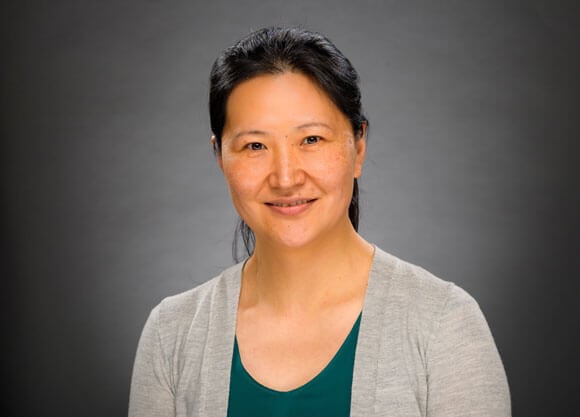
Sociology professor conducts research for change
March 30, 2023

March 30, 2023

Her research focuses on infant death, poverty and economic development in different world regions including China, Vietnam, Guatemala, Bulgaria, Russia and Sub-Saharan Africa.
“There are three takeaways from my research,” said Chen. “First, the population structure and economic development of a region are closely related. One influences another. Second, modern technology or information, such as satellite imagery or spatial data, as I used in my research, can answer many questions that we normally don’t have answers for. Thrid, marginalized populations often experience multi-faceted social inequality and obstacles. Policy changes could be one of the solutions.”
One of her findings showed that the local rate of infant death is closely related to economic development and the poverty level within those countries, she said. Spatial data and satellite nighttime lights provide information to test the hypothesis.
While analyzing spatial data, Chen has been collaborating with William Nordhaus, a sterling economics professor at Yale, for over 15 years. Chen and Nordhaus gather and publish Yale Gecon Data.
“Gecon data uses information from the Gridded Population of the World and GDP to create a grided economic activity measure for the world,” she said. “More specifically, we measure economic output at a 1-degree longitude by 1-degree latitude resolution at a global scale. Yale's Climate-Change Research Program and the QU Provost's Impact Grant support our most recent research effort to update Gecon data from 2005 to 2020.”
Chen and Nordhaus use spacial data to examine global development with digital nighttime light (NTL) images collected by satellites. The project is interdisciplinary as it covers economics, demography, remote sensing, geography and urban planning. Their findings revealed that NTL provides information on economic development for poor and rich countries. The results were published in the Proceedings of the National Academy of Sciences of the United States of America.
Chen also studies demography to discover more data on population growth, migration, immigration, fertility and mortality. One of her projects examined social mobility, which is moving up or down between social classes, amongst Chinese-Muslim immigrants in Canada.
“I found the intersectionality of their immigrant status, being ethnically Chinese and believing in the Islamic religion, makes this marginalized group face more discrimination than others,” said Chen. “Yet, their social network and overlapped cultural understanding with Chinese and Arabic-speaking populations helped them adapting Canadian society after immigration.”
Chen hopes Quinnipiac students can learn fundamental knowledge and skills for advanced research. For students who are interested in learning more, they can take her courses including Social Inequality (SO244), Population and Society (SO266), Research Methods (SO 290) and Studying Social Issues with Statistics (SO 382).
“My research focuses on contemporary data, but it has great implications for future prediction and forecasting,” said Chen. “For example, the demographic trend suggests that the U.S. future population will be more diverse and that local infrastructure will influence overall population health, including mortality rates. Advanced research or social development will rely on analyzing long-term large data information.”
Chen’s goal is to advocate for change through her research and findings.
“I hope to continue my research agenda, focusing on social inequality and using advanced methods and cutting-edge data to address social problems in different places and among different groups," she said.
Quinnipiac Today is your source for what's happening throughout #BobcatNation. Sign up for our weekly email newsletter to be among the first to know about news, events and members of our Bobcat family who are making a positive difference in our world.
Sign Up Now